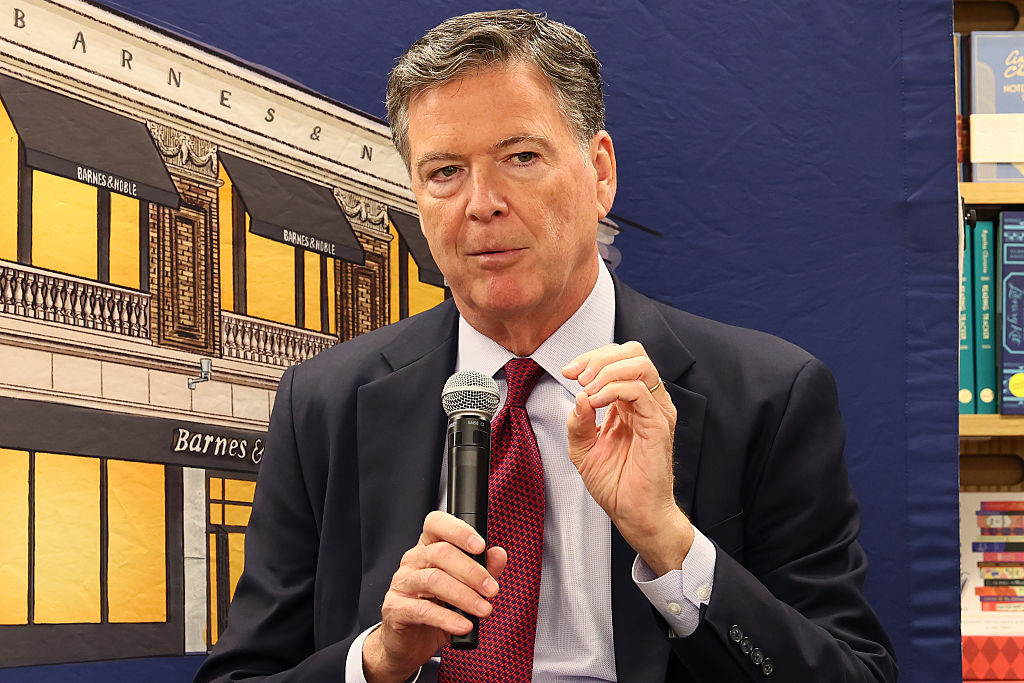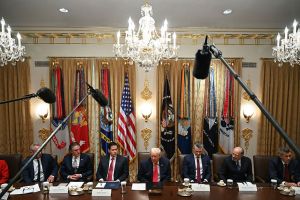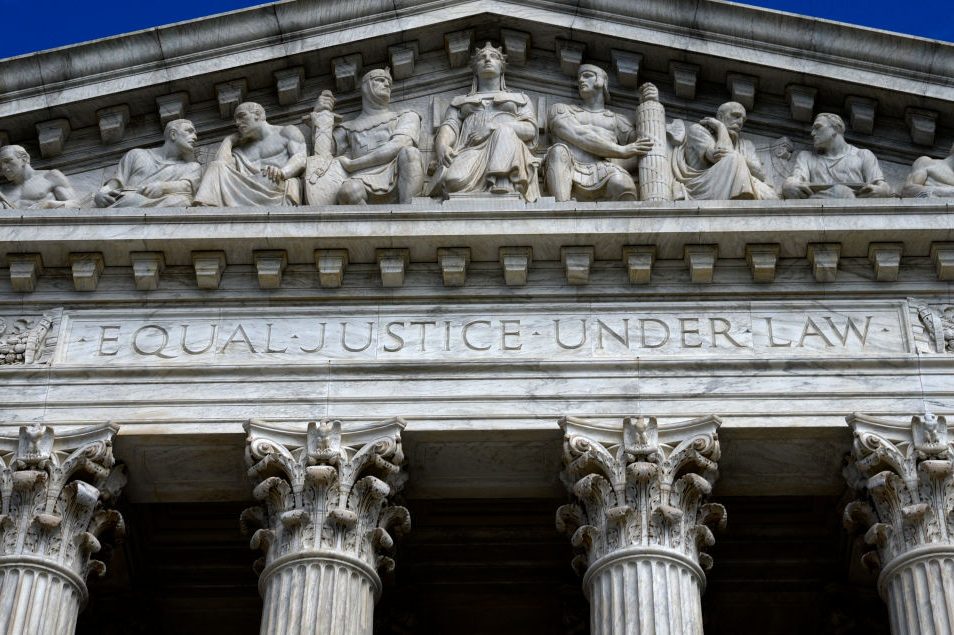Let the retribution begin. A federal grand jury in the eastern district of Virginia, a suburb of Washington, DC, has indicted former FBI director James Comey for lying to Congress about leaking classified information to the press. During his four years at the FBI, Comey became a linchpin of the movement among Democrats in Congress and their legacy press supporters to oust Donald Trump during his first term.
Trump never forgives and he never forgets. He’s been vocal in calling for his Attorney General Pam Bondi to bring the hammer down on Comey and applauded the departure of the acting US attorney for eastern Virginia, whom he called a “woke RINO [Republican in name only]” when he declined to seek indictments of Comey and New York State Attorney General Letitia James, another Trump scourge.
Comey’s bizarre tendency to insert himself into electoral politics is well documented. In July 2016, as Hillary Clinton moved toward winning the Democratic presidential nomination, Comey held a press conference to announce the results of a months-long investigation into Clinton’s use of a private email server, which contained hundreds of classified emails and which the FBI determined had probably been hacked by foreign governments. Despite finding that Clinton’s private server was likely to have violated the law – an apparent effort to hide her email communications from congressional investigators and the press – Comey gave Clinton a pass. “No reasonable prosecutor” would ever bring such a case, he declared, without providing much in the way of explanation.
Yet three months later, just weeks before the general election, Comey announced that he had found a new trove of Clinton emails and that he had reopened the investigation. The ensuing uproar changed the dynamic of the race, with Clinton having to defend herself against allegations she’d broken laws designed to protect government secrets from foreign spies. Clinton later blamed her narrow election loss on Comey’s decision to disclose the reopened investigation shortly before the election – and she was probably right in thinking so.
On the Republican side, no government figure was more instrumental in triggering the cascade of lawfare that overwhelmed Trump’s first term. Comey engineered a questionable criminal investigation into Trump’s first national security advisor, Michael Flynn, who was indicted on overblown allegations that he’d lied to FBI agents in a set-up interview.
In the world of white-collar crime, such charges are tantamount to door prizes for also-ran prosecutors who fail to prove the crime that initiated the investigation in the first place – in this case, colluding with the Russians. After years of legal wrangling, Trump pardoned Flynn and the Justice Department withdrew the case. But the affair bankrupted Flynn, who had to sell his house to pay the gargantuan legal bills. And of course, his career in public service was destroyed. Later, after hinting in congressional testimony that Trump had been colluding with the Russians in the 2016 election, Comey arranged to brief Trump on the almost entirely fallacious dossier of former British spy Christopher Steele, which asserted that the Trump election campaign was working with the Russians. The Steele dossier had been circulating among a handful of reporters in Washington in the fall of 2016, but no news organizations would touch it at first, so cartoonish were its allegations.
The briefing solved that dilemma. Word of Comey’s sit-down with Trump was leaked to CNN, which was then able to coyly explain that the dossier was newsworthy and important because, after all, it was the subject of a presidential briefing. In the minds of many Republican voters, Trump’s transparent desire to hit back at Comey is not only predictable but a desirable outcome. After all, the Russia collusion investigation turned up no evidence that Trump or his campaign worked with the Russians to defeat Clinton in 2016, yet much of Trump’s first term was consumed with pushing back against a manufactured scandal.
Although the allegations were baseless, they were like catnip for the anti-Trump press. Thus, more than a few Republicans have been heard to remark about Trump’s targeting of political enemies: “Yes, this is what I voted for.” But this is an extremely shortsighted approach. Just as the Biden administration’s targeting of Trump posed grave risks for the country, so too does Trump’s singling out of political enemies for prosecution. This case seems weak, based as it apparently is on conflicting “he said, she said” accounts of what Comey supposedly did. The congressional testimony in question took place on September 30, 2020, and the five-year statute of limitations was set to run out, meaning criminal charges would have been barred after the end of last month.
Career prosecutors in the US Attorney’s Office for eastern Virginia and Attorney General Pam Bondi – who’s no woke RINO – all reportedly recommended against pursuing the matter. It’s not implausible that the trial judge may take a look at the evidence and dismiss the case at the outset. In law enforcement, a system driven by reprisals and a payback mentality quickly loses credibility and public trust.
Independence and judicious application of the law without political bias are fundamental characteristics of a credible justice system. Any hope that citizens will believe the law is being fairly applied, that there is such a thing as right and wrong and that prosecutors and judges are making good-faith decisions based on the law rather than some crass election issue would soon be dashed if it becomes acceptable practice to use law enforcement as a tool for pursuing political vendettas.


























Leave a Reply